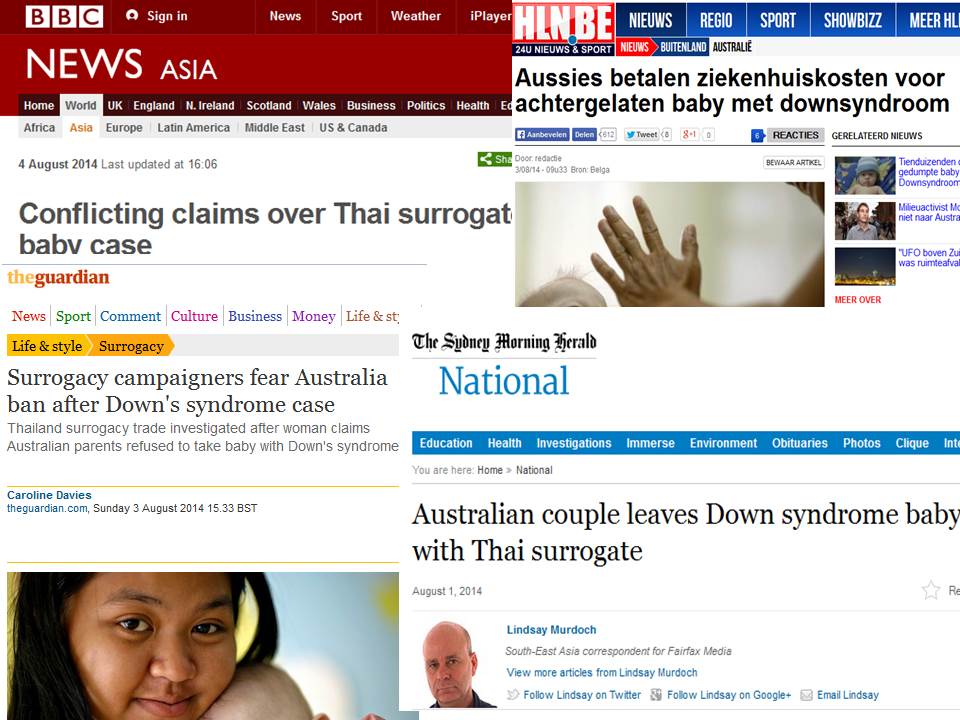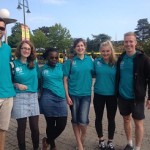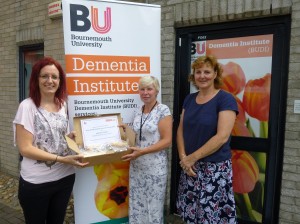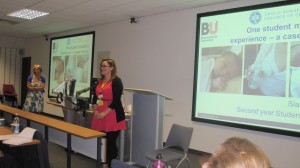 Over the weekend an interesting story appeared on the BBC news and in the Sunday papers. The story goes that an Australian couple left a Thai surrogate mother with a baby who is genetically their child. The reason for this abandonment is that the baby is not perfect. If that is not bad enough the couple has taken the healthy twin sister of this baby back home to Australia. Some newspapers reported that the Australian parents knew that the baby had Down’s syndrome from the fourth month of gestation onwards, but that they did not ask until the seventh month – through the surrogacy agency – for selective abortion of the affected fetus. The surrogate mother, Pattaramon Chanbua, says that the couple were told: (a) that she was carrying twins and (b) that one of the twins had Down’s syndrome as well as heart problems. The surrogate mother refused the intervention on the grounds of her Buddhist beliefs.
Over the weekend an interesting story appeared on the BBC news and in the Sunday papers. The story goes that an Australian couple left a Thai surrogate mother with a baby who is genetically their child. The reason for this abandonment is that the baby is not perfect. If that is not bad enough the couple has taken the healthy twin sister of this baby back home to Australia. Some newspapers reported that the Australian parents knew that the baby had Down’s syndrome from the fourth month of gestation onwards, but that they did not ask until the seventh month – through the surrogacy agency – for selective abortion of the affected fetus. The surrogate mother, Pattaramon Chanbua, says that the couple were told: (a) that she was carrying twins and (b) that one of the twins had Down’s syndrome as well as heart problems. The surrogate mother refused the intervention on the grounds of her Buddhist beliefs.
Surrogacy is often a commercial transaction e.g. in the USA, although such a ‘business contract’ is not legal in the UK (Ireland 2011) and some parts of Australia as widely reported in the media. However, in this case the Australian couple had paid Pattaramon Chanbua (a mother of two) to grow and carry the baby for them. She told the BBC that she had engaged in the surrogacy deal to get money to pay for the education of her other children.
This case epitomises several aspects of life that are of interest to sociology: (a) the commodification and commercialization of life (and health); (b) inequality and exploitation; and (c) globalisation. Commodification refers to the process by which something that was not originally bought and sold becomes a good or service, i.e. a commodity that is for sale. As we become more modern and with economic progress/the rise of capitalism, more and more parts of our lives become commodified. Modernisation changes society and its social institutions and organisations. Economic development is based on industrialisation, but is also strongly linked to urbanisation, mass education, occupational specialisation and communication development, which in turn are linked with still broader cultural and social changes (Inglehart 1997).
The second key issue sociologists are interested in is inequality and the link between poverty and poor health. In a global perspective where we, people in high-income countries, or so-called developed countries exploit people in low-income countries (or Third World, developing countries or under-developed countries).
Thirdly, globalisation refers to the world becoming a smaller place, both in terms of physical travel as well as the way we perceive it (Simkhada & van Teijlingen 2009). It takes us less time to travel to London, Paris, Kathmandu than it took our parents’ or grandparents’ generation, and at the same time the information about a disaster or a human tragedy story such as this one in Thailand reaches us more or less instantaneously. At the same time, modernisation and globalisation, particularly in many low-income societies, are contributing to rapid socio-cultural changes.
Surrogacy as commodification
Surrogacy is the commodification of a couple having a baby themselves. Other social solutions from the past to the problem of not being able to conceive include: (a) having more than one wife, a solution for men in a patriarchal society; (b) for women sleeping with their husband’s brother, to increase the likelihood that the baby ‘looks like’ the husband; and (c) adopting someone else’s child.
We must remember that aspects of maternity care have always been commodified. Rich British families in the nineteenth century would have been paying a wet nurse to breastfeed their babies and a nanny to look after their children whilst instant formula baby milk bought from a shop has been replacing breastmilk supplied by the baby’s mother for nearly a century.
We don’t think surrogacy is the interesting issue here, we should ask ourselves the more basic question ‘What makes us think that every birth and every baby is going to be perfect or even okay?’
One explanation is, of course, that we have seen a rapid decline in the number and the proportion of babies dying in high-income countries such as the UK over the past century and a half. Women having better nutrition, fewer children, having one’s first child later (but not too much later), better sanitation, and improved obstetric care have all contributed to making childbirth safer now for both mother and baby than ever before in the history of humanity. However, these changes have also affected our ways of thinking about childbirth (Mackenzie Bryers & van Teijlingen 2010).
Social scientists recognise a social model and a medical model of childbirth (van Teijlingen 2005; van Teijlingen & Ireland 2013). The former sees childbirth as a physiological event in women’s lives. Pregnant women need psycho-social support, but not necessarily high-technology interventions by doctors. The medical model stresses that childbirth can be pathological, i.e. every pregnant woman is potentially at risk. The medical model argues that every birth needs to be in hospital with high-technology screening equipment supervised by expert obstetricians. In other words, pregnancy and childbirth are only safe in retrospect. In terms of social changes, we have moved from a more social model to a more medical model in a society which is more risk averse.
Edwin van Teijlingen1 & Jillian Ireland2
- Professor of Reproductive Health Research, Centre for Midwifery, Maternal & Perinatal Health, Bournemouth University.
- Visiting Faculty, Centre for Midwifery, Maternal & Perinatal Health, Bournemouth University; Midwife & Supervisor of Midwives, RCM learning Rep. Poole NHS Hospitals Trust.
References:
Inglehart R. (1997). Modernisation and post modernisation: Cultural, economic, and political change in 43 societies. New Jersey: Princeton University Press.
Ireland, J. (2011) Reflections on surrogacy-using the Taylor model to understand and manage the emotions in clinical practice, Essentially Midirs, 2(9): 17-21.
Ireland, J., van Teijlingen, E. (2013) Normal birth: social-medical model, The Practising Midwife 16(11): 17-20.
MacKenzie Bryers, H., van Teijlingen, E. (2010) Risk, Theory, Social & Medical Models: a critical analysis of the concept of risk in maternity care, Midwifery 26(5): 488-496.
Simkhada, P.P., van Teijlingen, E. (2009) Health: a global perspective, In: Alder, B. et al. (Eds.) Psychology & Sociology Applied to Medicine (3rd edn.), Edinburgh: Elsevier: 158-159.
Teijlingen van, E. (2005) A critical analysis of the medical model as used in the study of pregnancy and childbirth, Sociological Research Online, 10(2) Web address: http://www.socresonline.org.uk/10/2/teijlingen.html

 Pupils learn how to programme Lego robots and design various robot attachments in order to complete challenges based around STEM careers.
Pupils learn how to programme Lego robots and design various robot attachments in order to complete challenges based around STEM careers. We’ve been collaborating with the Jurassic Coast World Heritage Site education team this year and have two activities we can run at public engagement events: digging for fossils in our specially made fossil boxes and then painting your fossil cast from the Jurassic Coast.
We’ve been collaborating with the Jurassic Coast World Heritage Site education team this year and have two activities we can run at public engagement events: digging for fossils in our specially made fossil boxes and then painting your fossil cast from the Jurassic Coast.  Thankfully the sun came out for nearly the entire festival period so we were incredibly busy for the entire period.
Thankfully the sun came out for nearly the entire festival period so we were incredibly busy for the entire period.


















 New Nepal scoping review on maternal & neonatal health
New Nepal scoping review on maternal & neonatal health Fourth INRC Symposium: From Clinical Applications to Neuro-Inspired Computation
Fourth INRC Symposium: From Clinical Applications to Neuro-Inspired Computation Writing policy briefs
Writing policy briefs Upholding Excellence: The Concordat to Support Research Integrity
Upholding Excellence: The Concordat to Support Research Integrity ECR Funding Open Call: Research Culture & Community Grant – Application Deadline Friday 12 December
ECR Funding Open Call: Research Culture & Community Grant – Application Deadline Friday 12 December MSCA Postdoctoral Fellowships 2025 Call
MSCA Postdoctoral Fellowships 2025 Call ERC Advanced Grant 2025 Webinar
ERC Advanced Grant 2025 Webinar Horizon Europe Work Programme 2025 Published
Horizon Europe Work Programme 2025 Published Horizon Europe 2025 Work Programme pre-Published
Horizon Europe 2025 Work Programme pre-Published Update on UKRO services
Update on UKRO services European research project exploring use of ‘virtual twins’ to better manage metabolic associated fatty liver disease
European research project exploring use of ‘virtual twins’ to better manage metabolic associated fatty liver disease